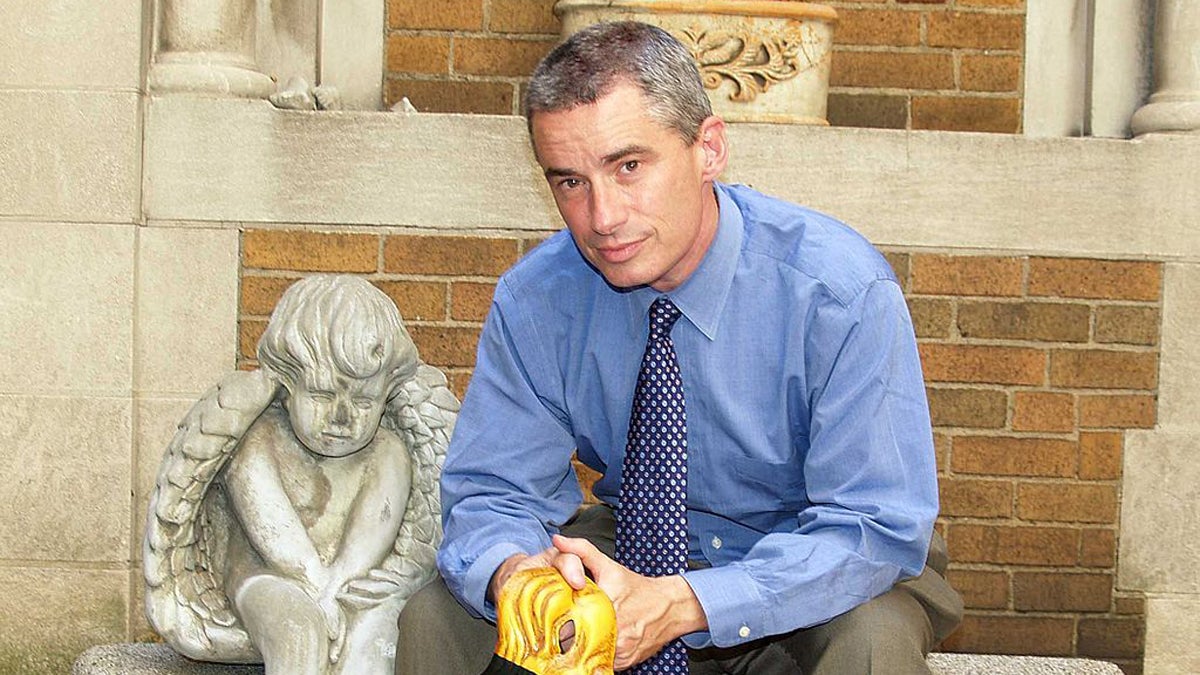Reflections on 10 years of good and the human capacity to change for the better

Former N.J. Gov. Jim McGreevey (Image courtesy of David Shankbone)
Ten years after resigning as N.J. governor, proclaiming “I am a gay American,” Jim McGreevey is executive director of the Jersey City Employment & Training Program. He helps former inmates make the transition back into the community. The former governor reflects on the past decade.
Jim McGreevey is still the only openly gay governor in American history. McGreevey always ran for elected office, from mayor of Woodbridge to the New Jersey Legislature to governor, while in the closet. And he only served openly for three months after his nationally televised speech on Aug. 12, 2004, when he proclaimed “I am a gay American.”
Ten years later, he is executive director of the Jersey City Employment & Training Program, having completed a degree at the General Theological Seminary in New York but never having become ordained as an Episcopal priest as he had hoped. In his current job, McGreevey works on helping former inmates make the transition back into the community.
Below are his reflections on the past decade.
—
And God said, Let us make man in our image, after our likeness(Genesis 1:26)
When I reflect upon these past 10 years, I am heartened as to the power of good in my life as well as the lives of many prisoners with whom I work. I am struck by the human quest for meaning, the universality of God, and the capacity for human transcendence from self to service.
My time in seminary and in prison ministry enabled me to lay side by side the narratives of my life with that of the prisoners I am privileged to serve. I slowly began to recognize the similar needs, wants, and aspirations for our lives. While many of us in our youth sought the things of this world, in our older years we have begun to seek peace, stability and love. While many of us started the journey of life in different places with different values and experiences, those healthiest fellow travelers in later life have suspended the need for certainty and are now willing to live in the mystery of purpose — what I call faith.
As opposed to the narrow sense of racial and religious identity politics so common behind bars (and in politics), largely based upon fear, retribution and power; when I and those of my community surrender to God, all of life becomes sacred and inviolate. In that surrender, we abjure the false hierarchies of humanity, “greater than” and “less than.” And, as we are each made in the likeness of God, we accept two cardinal truths: We are each made precious and valuable by the Creator, and all of humanity is created equal.
The challenge for the addict, the imprisoned and the broken is that the nadir of our lives ought not to define us. Indeed, it may become a turning point, a transcendent gateway, for the second half of life. Having been broken upon the chaos of life, if offered healthy spiritual direction; we may begin to examine and change the values and behaviors, which have brought us to this point.
For me, seminary offered me that time and place. Sadly for the overwhelming percentage of the imprisoned, their fall is to a dark and destructive hell where the worst maladaptive behavior is celebrated. If moral behavior is learned and adapted, there is a sick irony of sending the upwards of 70 percent of nonviolent offender addicts behind bars to survive without the benefit of addiction treatment in a jungle with the most violent perpetrators.
Our initiative at Hudson County Jail recognizes the gift of time and offers treatment to those inmates who would accept it. As opposed to simply tolling time behind bars, the Hudson County/Jersey City initiative commences the difficult process of personal transformation while in jail. Addiction treatment in jail, which is sustained upon release, adheres to clinical best practices.
We also labor to create, in the words of Dr. King, a “beloved community.” Adhering to the practices of the medieval mendicant orders, we require strict adherence to rules of behavior: requirements of work, civility and reflection. As a wizened priest shared with me: “You can’t think your way into new behaviors, but you can behave your way into new thinking.” Thus, we establish our own moral universe, which distinguishes between right and wrong, underscores that violence and anger will only bring more violence and anger, and that forgiving the trespass of others suggests we are no longer the oppressed. In short, each of us is capable of transformation; each of us holds the power of our redemption. In knowing each other as human beings regardless of apparent identity, conflict gives way to resolution, stasis gives way to change, and self gives way to selflessness.
A shift of consciousness of the individual offender is also beneficial for the entire community. In more fully becoming the actualized self, we are more fully aware of the sacredness of God in every human being. As Jean Valjean exclaimed in “Les Miserables,” “to love another person is to see the face of God.”
Lastly, upon the offender’s release, our beloved community continues to foster sobriety, civility, and work within structured transitional housing. As we strive to practice our new behaviors, spirituality transforms and celebrates the godliness of self, the transcendent vision of Creator and creation, and importance of compassionate service to community.
WHYY is your source for fact-based, in-depth journalism and information. As a nonprofit organization, we rely on financial support from readers like you. Please give today.

